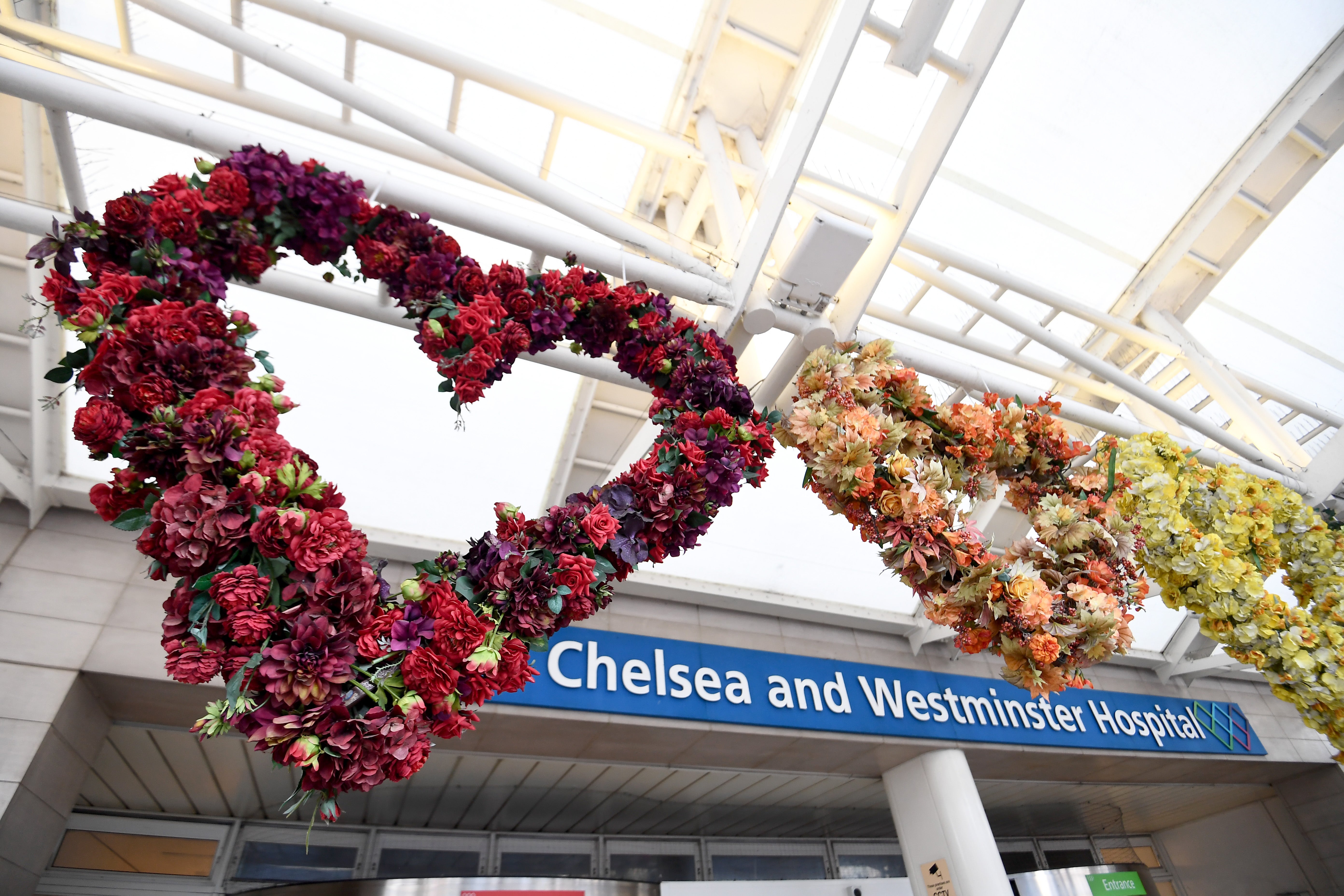Lawyers had children’s art banned from a hospital. What has Britain come to?
Chelsea and Westminster Hospital has removed a display of decorative plates


For a number of years, I was an outpatient at Chelsea and Westminster Hospital.
On my way to the radiology department, I would pause to look at a display of artwork by children in Gaza titled “Crossing Borders – a festival of Plates”. It put my experience in perspective: imagine living with a much worse diagnosis in Gaza, where life-saving medicines are regularly out of stock, cancer treatment is limited, and patients have died when their permits to get to hospitals beyond the blockade have been denied or delayed by the Israeli authorities.
As a British-Palestinian, it lifted my spirits to know Chelsea Community Hospital School had initiated a collaborative art project with students from schools in Gaza, enabling Palestinian children to send pictures of their everyday life to Chelsea’s students, who then transferred them onto a set of plates. So it was sickening to see a recent statement circulated by UK Lawyers for Israel (UKLFI), saying they were “delighted” the hospital had removed the display after they made a complaint.
UKLFI has a track record of targeting organisations giving voice to Palestinian experience. It was instrumental in getting educational publisher Pearson to edit school textbooks on Middle East history, with the reissued books having to be paused from further distribution when a group of academics said they distorted the historical record and failed to offer pupils a balanced view of the Israeli-Palestinian conflict.
In 2021, they pressured the University of Manchester’s Whitworth Gallery into censoring content within an exhibition by the critically acclaimed Forensic Architecture group. And in recent years they submitted three complaints to the Charity Commission about organisations supporting Palestinian human rights, all of which were rejected. Now they are targeting children’s art projects.
According to UKLFI, some Jewish patients felt “vulnerable, harassed and victimised” by the display at Chelsea and Westminster Hospital. Their complaint focused on two pieces of children’s artwork. The first was a plate showing the Dome of the Rock and a Palestinian flag, which they said implied that Jerusalem and “the site of what had been the Jewish Temple” would be part of a Palestinian state – omitting the essential fact that Al-Aqsa Mosque compound lies in occupied East Jerusalem, territory that has been illegally annexed, which neither the UK government nor the United Nations recognises as part of Israel.
The second piece was a plate accompanied by text about the history of Palestine’s fishing industry, referring to a shoreline running all the way from the Gaza Strip up to the northern tip of what is today Israel. Surely, it must be possible for Palestinian children to refer to the geography of their homeland as it existed before 1948 and the creation of the Israeli state without censure?
UKLFI went so far as to suggest the hospital trust could be “in breach of the Equality Act”, claiming the display was “discriminatory against Israelis, Jews and supporters of Israel”.
Some individuals may find artwork by Palestinian children an affront, and agree with UKLFI’s director that it is “incredible that Chelsea and Westminster Hospital would choose to link up with schools from Gaza”. But to suggest Palestinian children should not be seen or heard because the expression of their reality “discriminates” against Jewish people – or Israelis – feels extremely dangerous.
Space to give voice to Palestinians is shrinking fast in Britain. I find it beyond belief that instead of standing up for a project promoting contact with children growing up under a crushing military blockade and frequent bombardment, Chelsea and Westminster Hospital chose to take down their works of art. The hospital says it will be working with the “relevant parties” to decide what happens to the artwork. In my view, they should reinstate it.
Dr Aimee Shalan is chair of the British Palestinian Committee, an independent voice on British policy towards Palestine
Join our commenting forum
Join thought-provoking conversations, follow other Independent readers and see their replies
Comments


Bookmark popover
Removed from bookmarks